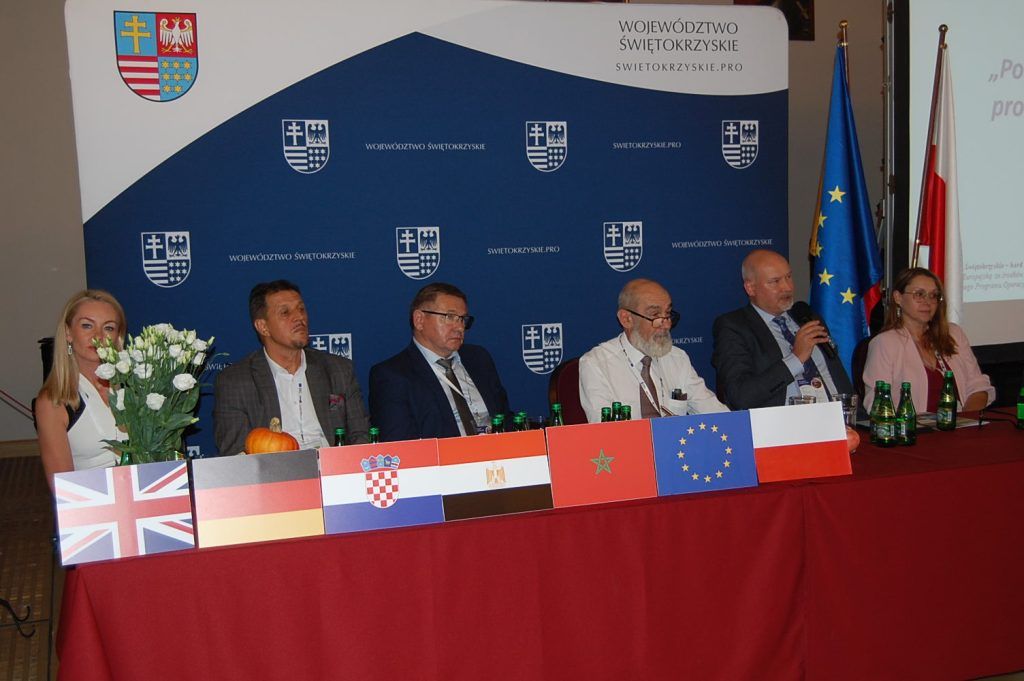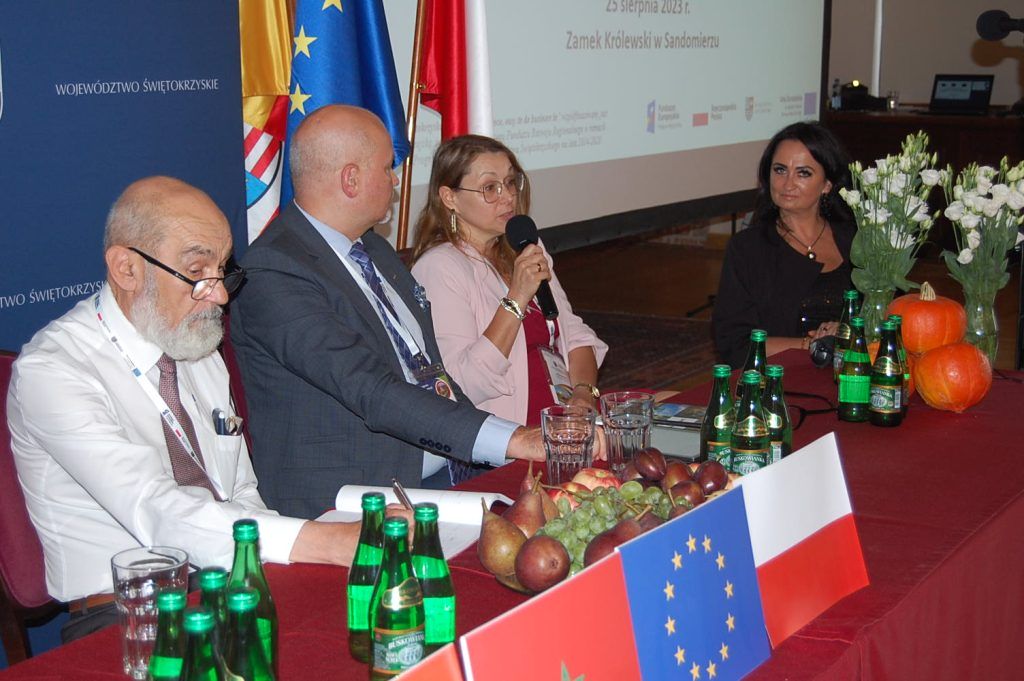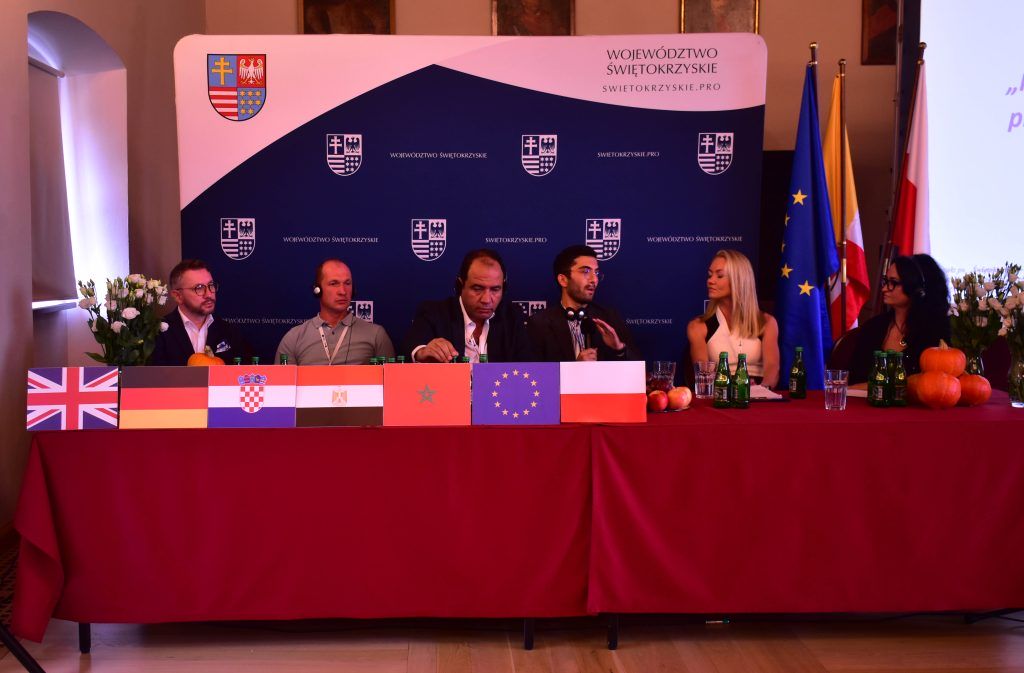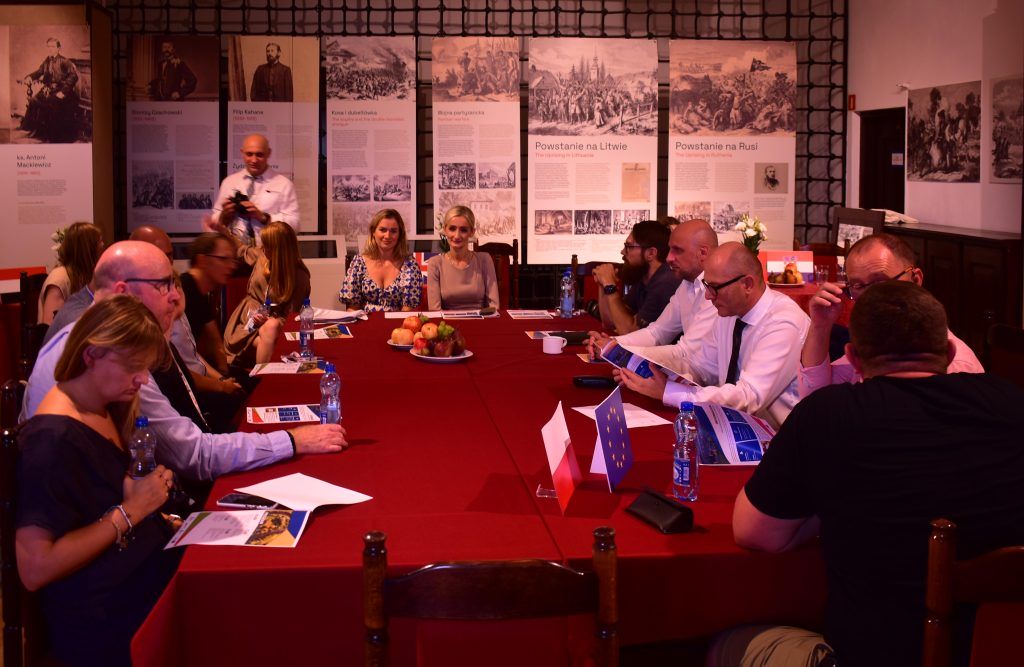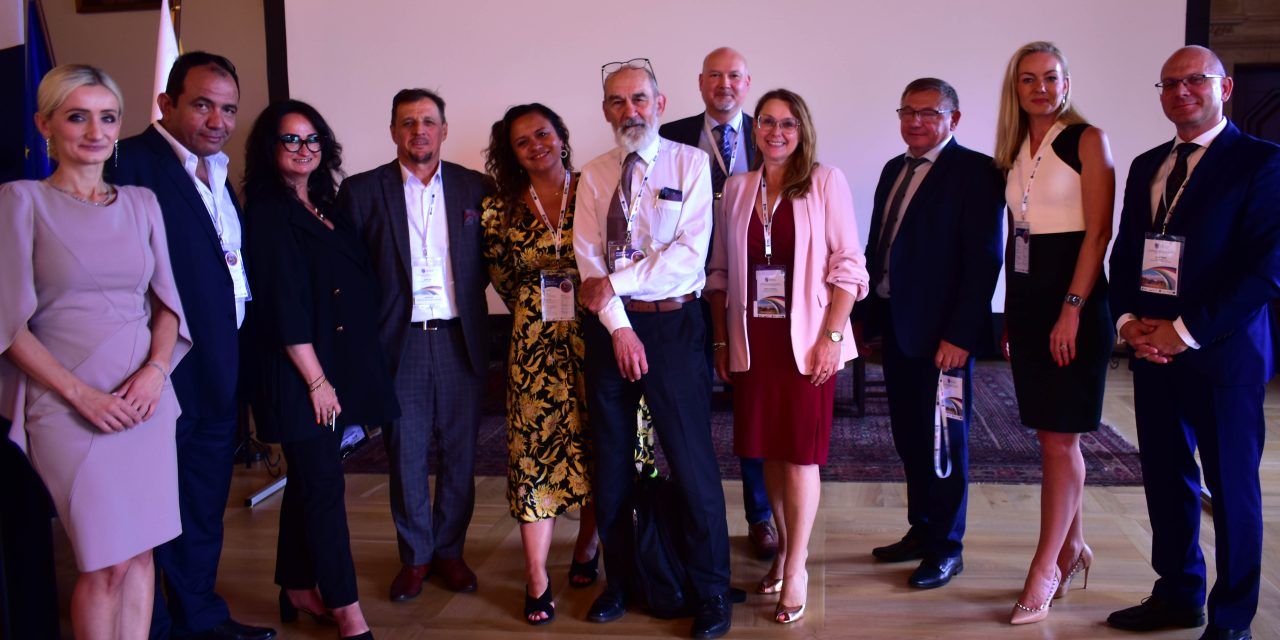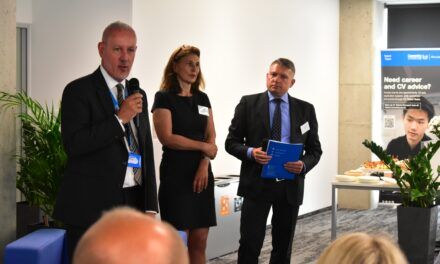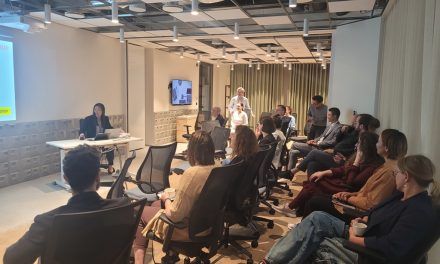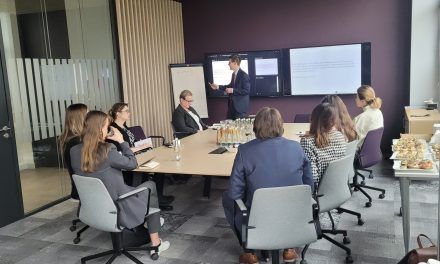Sandomierz and the region around is traditionally known for agricultural produce, in particular fruit and vegetables.
Among the 70 participants present for this year’s food exporters’ conference were local producers and processors, buyers from Egypt, Morocco, Germany, Croatia, UK and Ireland, as well as representatives of local authorities and the media. The BPCC’s chief advisor Michael Dembinski was on hand to brief a group of 11 local firms travelling to London for the Speciality & Fine Food Fair 2023, and he also took part in one of two panel discussions talking about current problems facing businesses across the supply chain.
Agricultural production in Poland is moving in two directions. The first is the trend towards ever-larger areas of land creating economies of scale, heavily invested, with ever-greater levels of professionalism, typically driven by long-terms contracts with the supermarket chains. The other direction is organic farming on smaller, family-owned farms, with a focus on the highest quality.
Both trends require investment and know-how. Seven years ago, shortly after Russian imposed sanctions on EU agricultural produce, the Sandomierz region was hit hard, as it had become accustomed to selling to that market; usually crops for cash with little attention paid to consistency and quality. But local producers have had to make the switch to supplying the far more demanding markets of western Europe.
This involved the investment in new facilities for harvesting, sorting and storing fruit, modernising orchards, and offering large-scale supply of product of consistent quality and calibre. Sandomierz has an ideal climate, with much sunshine whilst not being too hot, so the balance between sweetness and acidity is optimal. Climate change is benefiting wine producers from the region, with more and more vineyards appearing on south-facing slopes.
Whichever direction a grower in pursuing, in general Sandomierz needs to move from high-quality/low-price production to high-quality/mid-price. Yet local growers are still living with low margins even as they are being forced to invest heavily to catch up with the Grójec fruit-growing region south of Warsaw which made the leap to Western standards soon after Poland’s EU accession.
Two thirds of the Sandomierz region’s agricultural land is given over to fruit and veg production, but typically farms here are six hectares rather than 100 hectares needed for economy of scale. Buyers heard that the region can offer organic products of the highest quality, but that local producers are poor at cooperating with one another – Poland needs to catch up with Spain, Italy and France when it comes forming cooperatives and promoting regional products and building consumer awareness across the EU.
Tours around vineyards, orchards, restaurants, bakeries. Nine vineyards – still a niche, but doing better in international competitions.
The region’s small farms and orchards use less pesticides and chemicals and are focused on optimising production and storage, and on adding value by processing raw materials. EU funds for agricultural development, environmental protection and economic competitiveness are being put to good use. The region is opening up to new markets, such as those of North Africa where price is crucial.
I was last at this event seven years ago, in 2016. Living among the orchards of the Grójec district, south of Warsaw, I could see that the contrast between the levels of development between the two regions has shrunk – new warehouses have sprung up, there is a more modern approach to marketing – a focus on consistency and quality, new equipment. Visitors were impressed by the modern equipment used in handling and storing the produce.
Also present at the event were representatives of BPCC member firm J. Dauman. The group, which has Polish roots, is headquartered in London and is well-placed to serve Polish businesses interested in entering the UK market. Functioning as a large hub that can help Polish exporters, J. Dauman’s experts knows UK regulations, finance, accountancy and VAT/duty issues and logistics; the group even has its own customs agency. J. Dauman can also help with marketing to UK consumers, who are culturally different to consumers in Poland when it comes to shopping habits and preferences.
